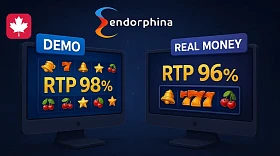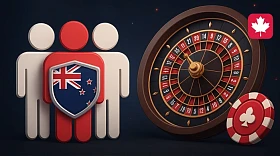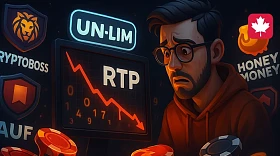
Gambling Ads and Addiction: Should Bans Be the Solution?
Gambling addiction is becoming an increasingly pressing issue in Japan, with the rise of online casinos often blamed for exacerbating the problem. The Society Concerned about Gambling Addiction has reported alarming trends, including a dramatic 11-fold increase in consultation requests between 2020 and 2024. Some experts argue that banning gambling advertisements could reduce these numbers, especially among minors. However, others, including myself, question whether such bans are necessary—or effective.
A Growing Crisis in Japan
The COVID-19 pandemic accelerated the shift to online gambling, making it more accessible and pervasive. According to the Tokyo-based society, the convenience of gambling on smartphones has contributed significantly to the increase in addiction rates. In 2024 alone, 91 families sought help for loved ones addicted to online gambling, a stark contrast to just eight cases before the pandemic.
Many addicts have resorted to illegal activities, such as theft, embezzlement, and "yami baito" (illegal part-time jobs), to finance their gambling habits. This has had devastating consequences for families, as illustrated by the case of a mother forced to send her son JPY10 million to prevent him from committing crimes—a situation that ended in his arrest for robbery.
Calls for Stricter Measures
Advocates for banning gambling ads argue that such measures could limit exposure, particularly for vulnerable groups like minors. Surveys show that more than 30% of families affected by gambling addiction have experienced criminal behavior from addicted members. Proponents believe curbing advertising would reduce the normalization and glamorization of gambling, potentially lowering addiction rates.
Should Gambling Ads Be Banned?
While restricting gambling advertisements might seem like a straightforward solution, it raises concerns about fairness and freedom of expression. Advertising itself is not inherently harmful; instead, the focus should be on responsible advertising practices. For instance, ensuring ads are not targeted at minors and providing clear warnings about risks can strike a balance between industry growth and consumer protection.
The Case for Streaming and Gaming Content
One area of contention is live-streamed gambling content, often watched by minors. While critics argue that such streams fuel addiction, these platforms also serve as entertainment and education for adult audiences. Rather than outright bans, stricter guidelines on age verification and content moderation could address concerns without stifling creative expression.
A Balanced Approach to Regulation
Addressing gambling addiction requires a multifaceted approach:
-
Strengthening regulation of online casinos to ensure fair practices and responsible gaming tools.
-
Supporting treatment programs for addicts and their families.
-
Encouraging collaboration between governments, platforms, and operators to promote safe gambling environments.
While gambling addiction is a serious issue, banning advertisements and streams outright might not be the best solution. Instead, thoughtful, targeted regulations and education can help protect vulnerable individuals while preserving the freedoms of those who enjoy gambling responsibly.




tickscollar All this bullshit was invented to squeeze out the last money. It used to be easier - bet on red, win or lose. And now some chickens are running, airplanes are flying... Circus.



xSuiZ The article is fire! Everything was laid out according to the facts. Drake is not a ludomaniac, he is a walking advertisement. And while the suckers believe in his "curse", Stake rakes in the money. Beautiful, you can't say anything. I've been riding a steak myself for a year now, I threw in crypto and generally don't give a about all the blocking.


Leoak Finally a good article on NC! I've been playing them since the very beginning, since the first Deadwood. Yes, their dispersion is crazy, you can lose a deposit in 100 spins. But when he pours ... It's worth it. In Mental x15k I caught, I still remember this spin. The whole point is in their x-mechanics, they really change the game, and not just for show.


tealblossom 2 minutes to respond? Yes, this is a dream! Otherwise, while you wait for these operators, you will already want to play. It's high time!


2sMilkiMiDiosa FIRE IN THE HOLE 3!! SCAM FROM NOLIMIT! HIT 2K, SPIN $10, NOT A SINGLE, BONUS!! HE JUST EATS AND DOES NOT CHOKE! I'LL NEVER GET INTO THAT SHIT AGAIN!












































Streaming gambling content can be entertaining for some, but it needs better oversight. Guidelines to limit exposure to minors while maintaining the entertainment value for adults could strike the right balance.
It's heartbreaking to hear about families being torn apart by gambling addiction. Authorities should prioritize accessible treatment programs and financial counseling for affected individuals and families.
The rise in gambling addiction seems more tied to the easy availability of online casinos than advertising. Regulating the platforms themselves and offering self-exclusion tools might have a bigger impact than banning ads.
Banning ads won't solve the root problem of gambling addiction. Instead, we need better education and awareness programs to help people understand the risks and make informed choices.
Live-streamed gambling content should have stricter age restrictions and moderation. While it’s a form of entertainment for adults, more measures are needed to prevent minors from accessing such content.